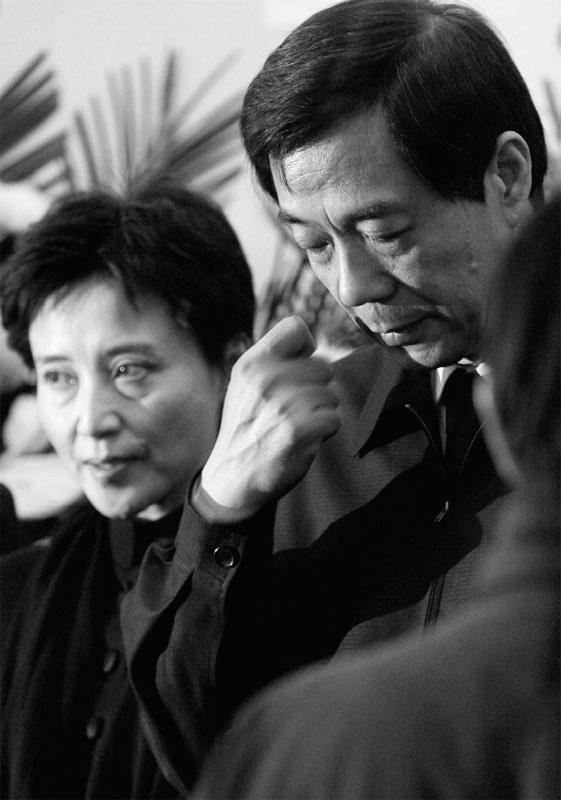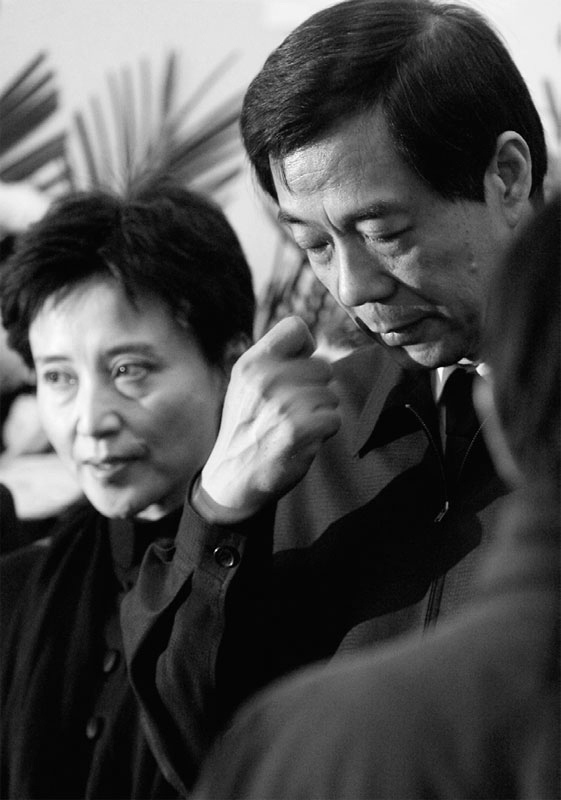Law enforcement agencies in Anhui Province have charged Gu Kailai, wife of ousted Chinese Communist Party official Bo Xilai, with murder, according to a July 26 report by state-run media Xinhua. However, nothing was said about charges against Bo, former Party boss of Chongqing.
Yet Bo was reputedly involved in a coup, so how the couple’s cases are handled gives outsiders a glimpse into the internal strife at the highest levels of Chinese politics.
Neil Heywood, a British businessman closely involved with the Bo family, was found dead in a Chongqing hotel room last November. The cause of death was given as “alcohol poisoning,” and his body was hastily cremated without an autopsy.
Since February, when Wang Lijun, former police chief of Chongqing, sought asylum at the U.S. Consulate in Chengdu and triggered Bo’s downfall, the Chinese Communist Party (CCP) has yet to decide what crime to charge Bo with.
With the 18th National Congress of the Communist Party of China fast approaching, the progress with Gu’s case has caused much discussion and speculation.
Li Tianxiao, columnist for The Epoch Times, believes the charge against Gu Kailai signals that the CCP has reached an internal consensus on how to handle Bo. In addition, this case has been delayed for a long time and needs to show progress before the opening of the National Congress in the fall. Beginning with the charges against Bo’s wife is less controversial.
Li said, “To a certain extent, starting with Gu Kailai serves to test the waters for the Chinese Communist Party leadership. The leadership has been debating whether to charge Bo with political insurrection or criminal offenses.”
In February, Voice of America quoted a U.S. official saying that Wang Lijun had information about the power struggle in the highest Chinese political circles.
According to that narrative, the “hardliners,” including Bo Xilai and Politburo Standing Committee member Zhou Yongkang, had tried to block the smooth transition of power from Premier Hu Jintao to Vice Premier Xi Jinping.
Li believes that the handling of Bo’s case is directly related to the possibility of future charges against former Party head Jiang Zemin, as well as Zhou Yongkang, and other members of their faction, including charges for their involvement in the persecution of the spiritual practice Falun Gong. It may even concern the collapse of the Chinese Communist regime. “The Chinese Communist leadership is testing the waters to see if they could charge Bo with criminal offenses [instead of insurrection].”
Fang Linda, an Internet-based columnist, said that since the persecution of Falun Gong began in 1999, the CCP’s 16th, 17th, and 18th conferences were all focused on the persecution. The “bloody-hands” faction led by Jiang Zemin has gained tremendous profit and power during the 13-year persecution.
For example, current Political and Judiciary Commission Chairman Zhou Yongkang became a Politburo member thanks to his active role in the persecution of Falun Gong. In order to protect himself and continue the persecution, Jiang planted more supporters in the highest levels of the Chinese government. Bo Xilai was positioned right after Zhou Yongkang. That’s why the treatment of Bo Xilai will closely indicate how Zhou Yongkang and the “bloody-debts” faction will be charged in the future.
Fang said that corruption and murder are not the Communist Party’s main concerns regarding Bo. Instead, the Party is worried about insurrection and a political coup. “If Bo is ultimately charged with corruption and murder, it would be because Hu Jintao did not want to publicize the internal conflicts of the Chinese Communist Party, and wanted to maintain superficial stability during the 18th National Congress of the Communist Party of China.”
Liu Xiao said online that the fact that government-run newspapers called Gu Kailai “Bo Gu Kailai”—adding the husband’s last name to the wife’s name is an uncommon practice in modern China—showed that Hu Jintao is determined to charge Bo with criminal offenses. This is consistent with the speech Hu gave on July 23 to provincial-level government officials and above. During the speech, Hu expressed concern over the risks and challenges currently faced by the CCP. He raised the issue of political reform, but said it had to be based on the premise of the one-party system.
According to Liu, keeping the one-party system means that the Party’s internal conflicts cannot be exposed to the public. Naturally, Hu would choose to cover up Bo’s insurrection and find a “soft-landing” for Bo’s fellow faction members, including Zhou Yongkang. The crimes of the Political and Judiciary Commission, especially those committed against Falun Gong, can be temporarily concealed in order to postpone the collapse of the CCP.
Liu believes that the announcement of the murder charges against Gu Kailai prior to the leadership conference in Beidaihe is one way for Hu Jintao to try to stabilize the shaky internal CCP politics.
The Epoch Times publishes in 35 countries and in 19 languages. Subscribe to our e-newsletter.
Click www.ept.ms/ccp-crisis to read about the most recent developments in the ongoing crisis within the Chinese communist regime. In this special topic, we provide readers with the necessary context to understand the situation. Get the RSS feed. Get the new interactive Timeline of Events. Who are the Major Players? ![]()



